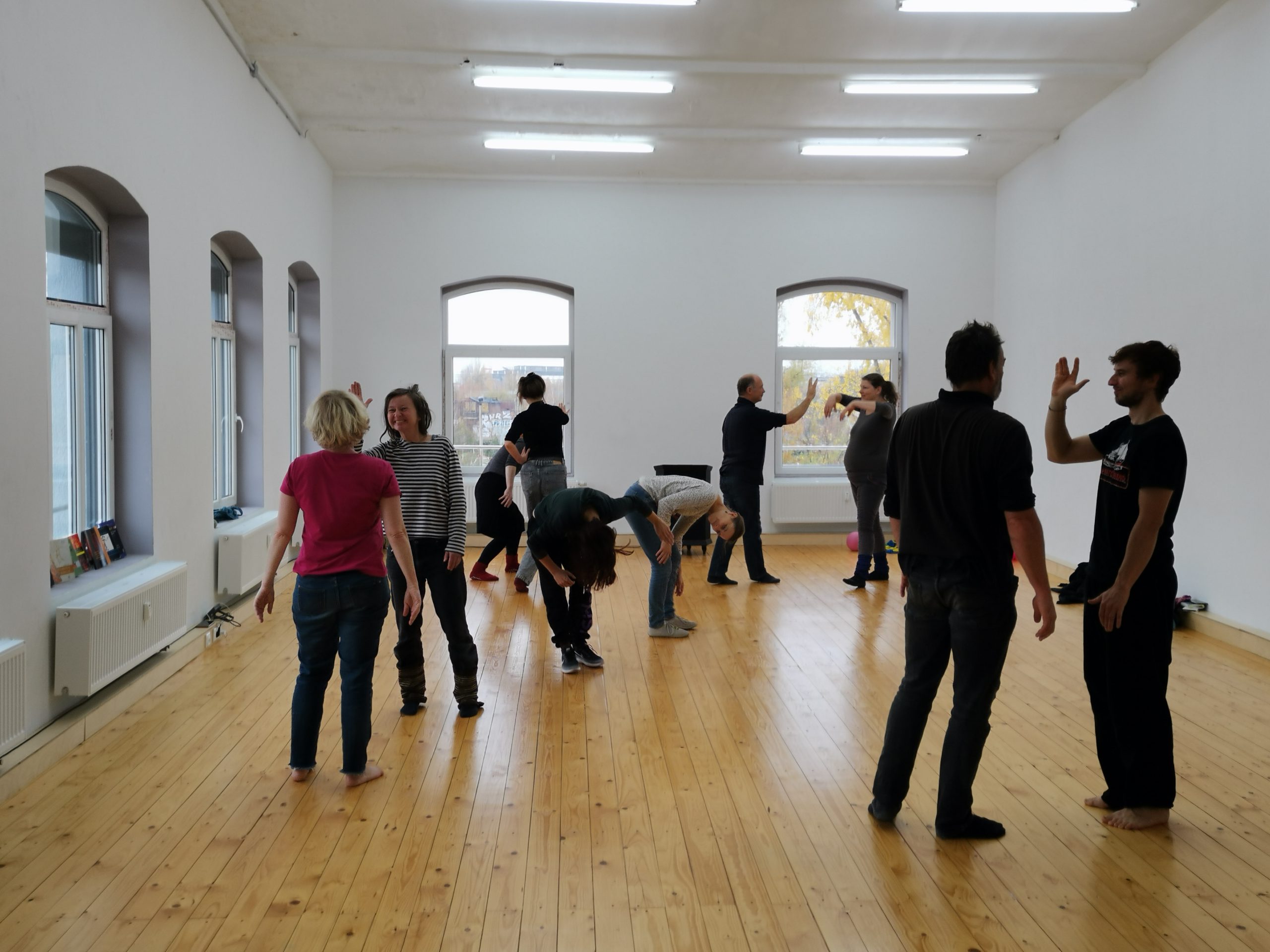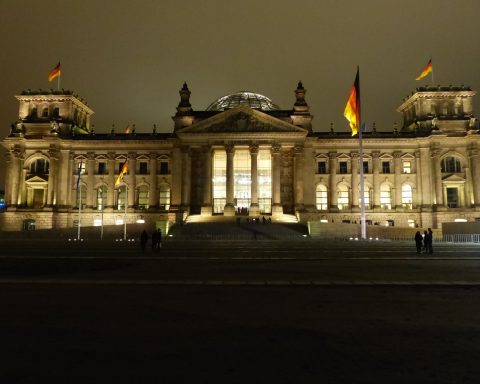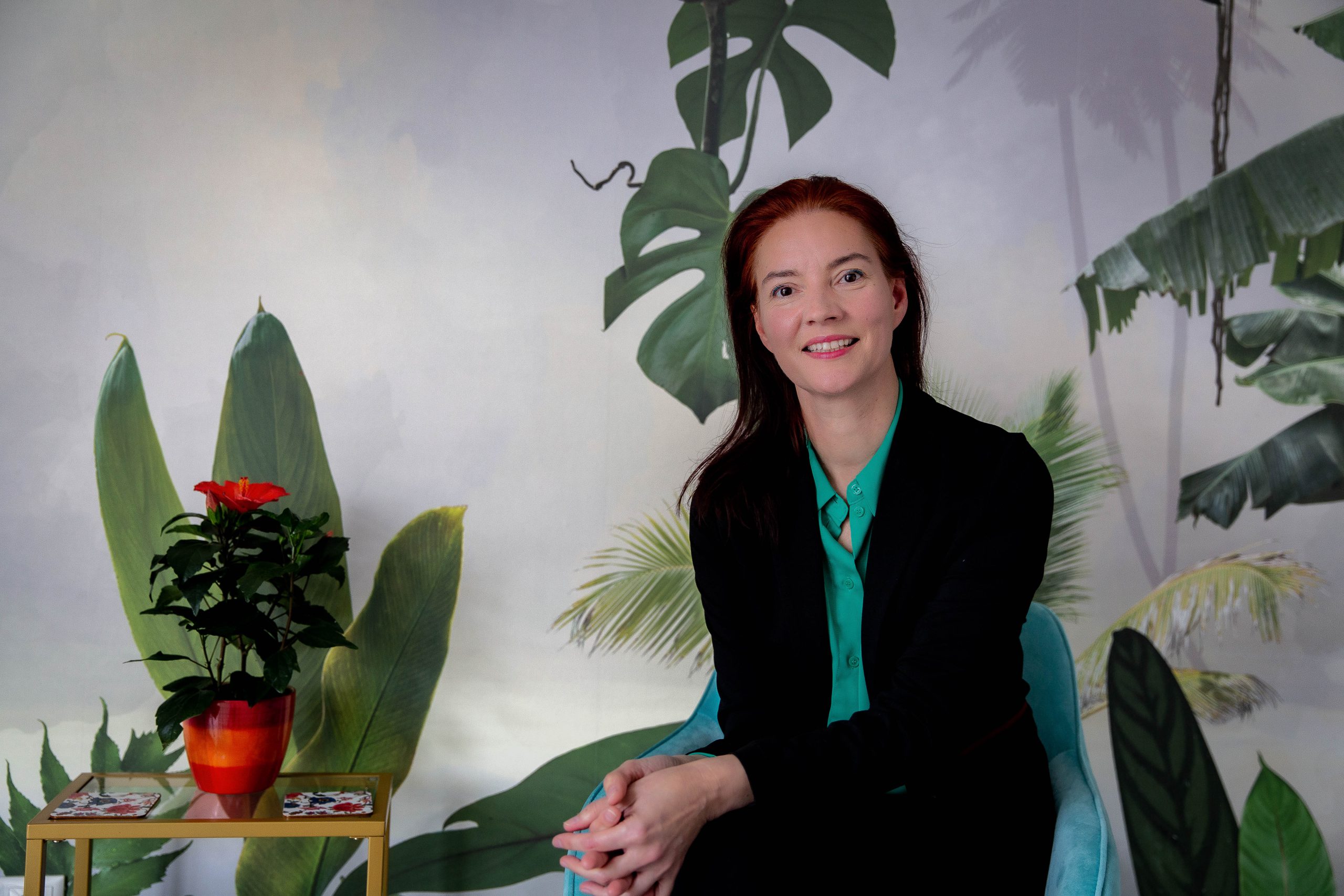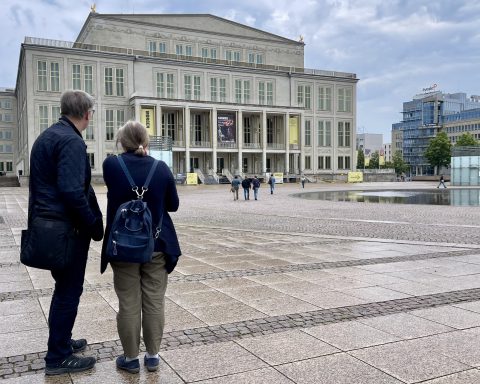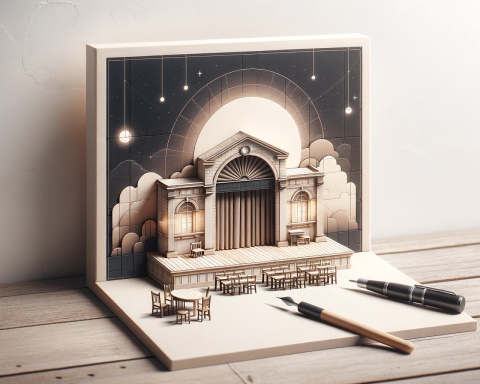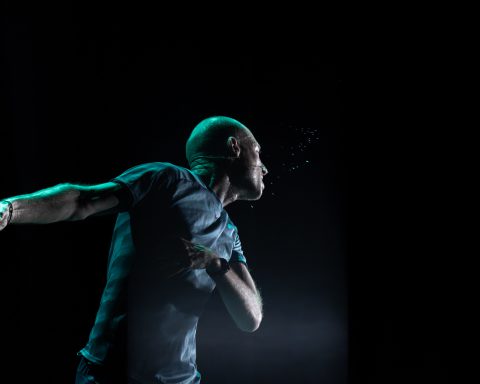An ongoing global pandemic, the rise of ultranationalist governments, a war in Ukraine with ripples felt far beyond. Take your pick; the last few years have been especially challenging (and divisive) for so many people worldwide. Theater of the Oppressed, an art form that originated in Brazil, provides a healthy and collective outlet for working out (or at least addressing) our individual and societal problems.
A free English workshop is planned this summer by Robert Klement, an actor, theater therapist and teacher. Below, Klement speaks with Leipzig Glocal about the workshop, which is free for participants (trials begin in June, you can see all the dates here).
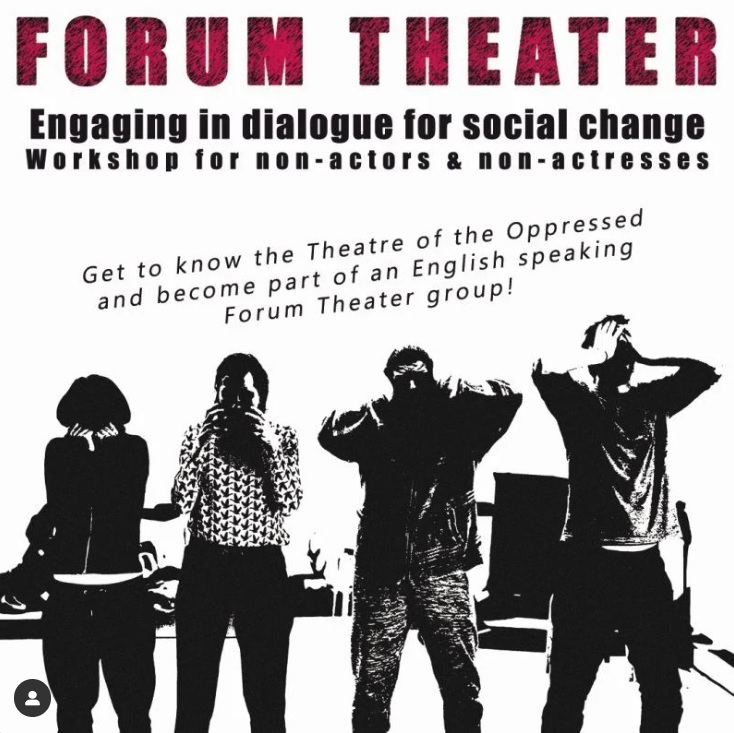
Can you tell me about Theater of the Oppressed and how it can help us navigate today’s world?
Robert Klement (RK): Theater of the Oppressed (TO) is a collection of games, exercises and theater techniques created and collected in the second part of the 20th century by Augusto Boal, a Brazilian theater director, writer and activist. It is possible to describe TO as a toolbox: each technique was developed from a specific necessity to serve a specific purpose. All of them are used as a means to facilitate discussions about social issues and create visions for the future.
The best-known technique from Boal’s toolkit is forum theater, a performance tool that takes complex and difficult issues to the stage and invites the audience to become “spect-actors.” The audience can leave their seats and come up to the stage, replacing the performers and changing the play to create a more satisfying outcome.
A forum theater discussion invites participants to show what they mean instead of saying what they think.
RK: By exploring different needs, desires and ideas, TO can be used not only for empowerment but also for facilitating dialogue between polarized groups and communities. Generally, workshops and performances of TO invite people to share experiences instead of knowledge. Especially in times of great political division, it is a useful tool to overcome biases and create encounters in an atmosphere of empathy and trust.
Can you speak more about past performances and the social issues addressed?
RK: I’ve been working with TO since 2008 and have organized workshops and performances that have addressed the challenges of second-generation Italians of Arab descent, structural discrimination of disabled people in Vienna, and political division and extremization in eastern Germany.
I have done many introductory workshops before where people addressed social and political issues and questions that are part of their lives. What is new this time is that the workshop will collect topics for w forum theater play that will be rehearsed during the performance workshop. This way, the project will hopefully create a long-lasting structure of participative theater and create Leipzig’s first English-speaking forum theater group.
I believe this to be important since, over the last few years, many people from different backgrounds and origins have decided or were forced to settle in Leipzig.
There is a need for all human beings to actively create our lives, to participate in our surroundings and to get in touch with other groups and communities. A forum theater group would be a space for some people to meet those needs and maybe even offer the same space to others.
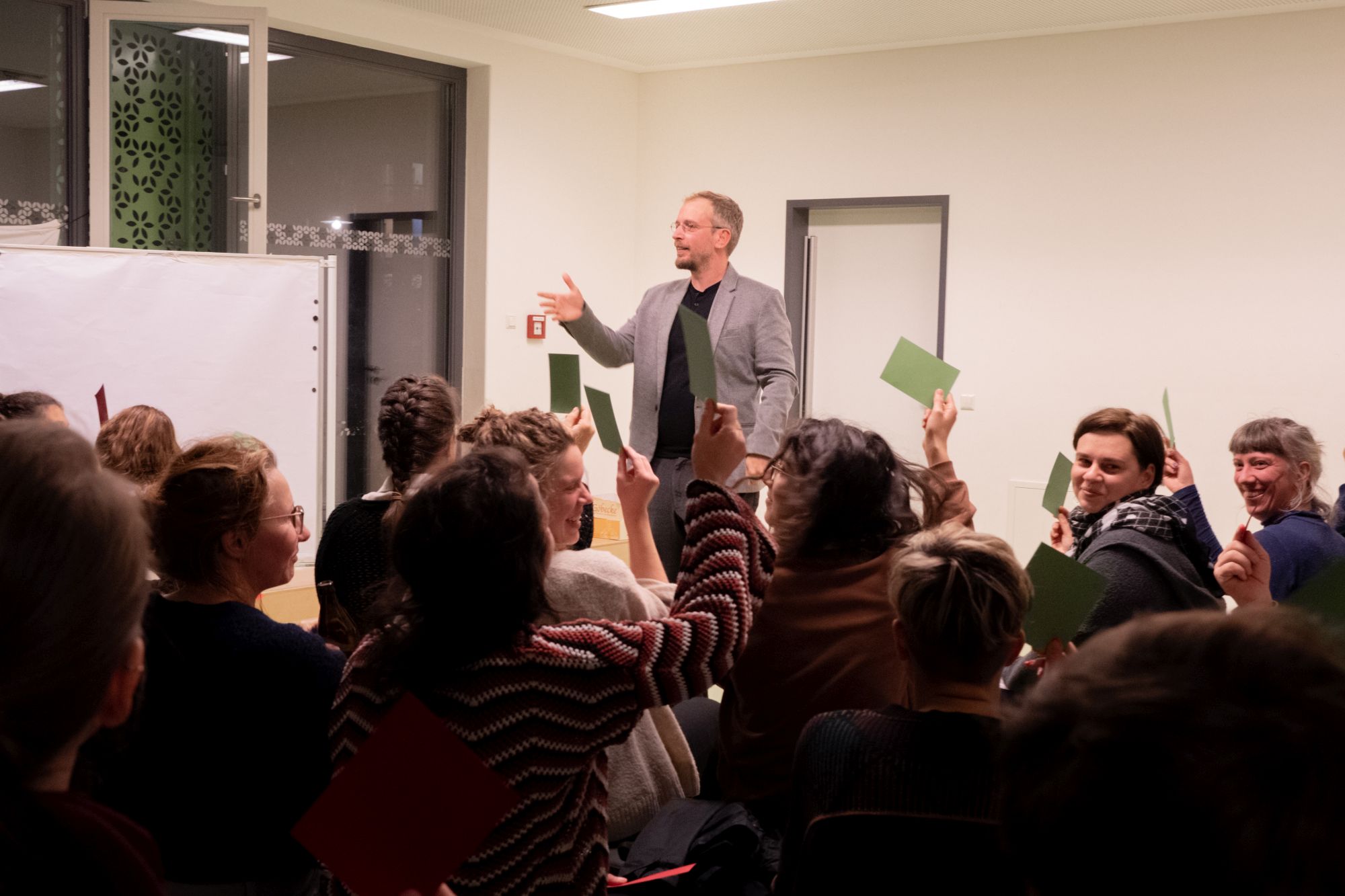
Do you have to have previous theater experience to join?
RK: No, TO specifically works with non-actors and non-actresses (even though actors and actresses are invited as well). We use games and exercises that are accessible to everyone and invite people to play and get comfortable on stage.
Since this is a discussion method we don’t focus on acting experiences but rather on life experiences. People bring questions from their own lives and topics they can relate to. This way, we make sure that during our performances we have the biggest experts on stage for the themes we discuss.
Oppression, social and political change—is there an opportunity to have some fun, too?
RK: No, unfortunately, this is serious business. I am just joking. Of course, there is an opportunity to have fun. TO brings a playful and joyful note to the talks we need to have about the challenges of our time.
Boal said that we don’t need to find the answers to our questions, but rather search for the questions that lie underneath the questions we know. Therefore, TO is a tool to “un-learn” and “re-learn” the answers we have. Nowadays, everyone feels a need to have quick and perfect answers: not having an answer is a high risk. So in order to un-learn we need an atmosphere of trust.
That is why, first of all, we play games. Games are a very democratic space: we run the same risk, we establish rules and we cooperate.
But games also allow us to be foolish. In my understanding, foolishness is one of the keys to development. It teaches us to laugh at ourselves, it creates the trust to show different facets of ourselves and it creates community. But most importantly, it allows us to establish an atmosphere of welcoming mistakes. Because only through mistakes we can learn.
So TO tries to balance both fun and seriousness, play and discussion.
How can I get involved?
RK: First of all, you can join the summer workshop, the performance workshop, or both. The first forum play is meant to address issues for young people aged between 16 and 30. But don’t hesitate to join if you’re older! The performance workshop has no age limit. Participation in both workshops is free. And the workshop facilitator might have a German accent.

